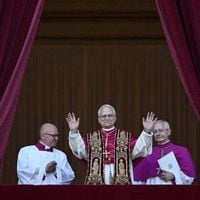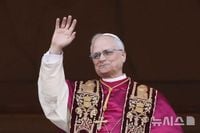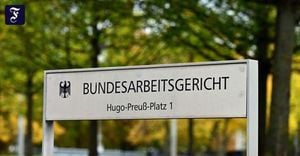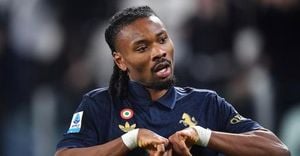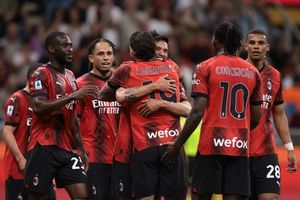On May 8, 2025, Cardinal Robert Francis Prevost was elected as the 267th Pope, marking a historic moment as he becomes the first American pontiff in history. The announcement was made during a ceremony at St. Peter's Basilica in the Vatican, where the Cardinal Protodeacon declared "Habemus Papam," meaning "We have a Pope," from the iconic Balcony of Blessings.
Prevost, who is 69 years old and originally from Chicago, has chosen the papal name 'Leo XIV.' This name, derived from the Latin word for lion, symbolizes strength, courage, and leadership—qualities that many hope he will embody during his papacy. The election of Pope Leo XIV comes just 17 days after the death of his predecessor, Pope Francis, who passed away on April 21, 2025.
During his first appearance on the balcony, Pope Leo XIV greeted the crowd and delivered his inaugural message in Italian, stating, "La pace sia con tutti voi," which translates to "May peace be with you all." This traditional greeting was followed by the customary apostolic blessing, 'Urbi et Orbi,' directed at both Rome and the world.
Born on September 14, 1955, Prevost joined the Order of Saint Augustine in 1977 and was ordained as a priest in 1982. He spent over two decades as a missionary in Peru, where he also acquired Peruvian citizenship in 2015. His extensive international experience and fluency in both Spanish and Italian have positioned him as a prominent figure within the Catholic Church.
In 2023, Prevost was appointed as a cardinal by Pope Francis and subsequently served as the Prefect of the Dicastery for Bishops, overseeing the appointment of bishops worldwide. His background and experiences have shaped a pastoral approach that emphasizes a commitment to the vulnerable and marginalized, echoing the values championed by Pope Francis.
As the new Pope, Leo XIV is expected to continue the synodal path initiated by his predecessor, fostering collaboration between bishops and engaging with laypeople in the Church. The New York Times noted that while Prevost shares common ground with Pope Francis in his concern for the vulnerable, his style as Pope may differ significantly.
The election of Prevost was achieved after only four ballots during the conclave, which lasted just two days. This rapid selection reflects the urgency and significance of finding a successor to Pope Francis, whose leadership was marked by a focus on social justice, interfaith dialogue, and outreach to marginalized communities.
As the world watches, Pope Leo XIV's leadership will be scrutinized, particularly in how he addresses pressing issues such as poverty, immigration, and the Church's role in a rapidly changing global landscape. His commitment to these matters will be pivotal in shaping the future of the Catholic Church.
Prevost's election is not just a personal milestone but a transformative moment for the Catholic Church, which has seen a growing number of challenges in recent years, including declining attendance in some regions, scandals, and calls for reform. The new Pope's approach to these issues will be critical as he seeks to unite a diverse global congregation.
In summary, the election of Robert Francis Prevost as Pope Leo XIV marks a historic turning point for the Catholic Church, heralding a new era of leadership that blends traditional values with a modern understanding of the Church's role in society. With his rich background and commitment to service, the new Pope is poised to make significant contributions to the Church and the world.
